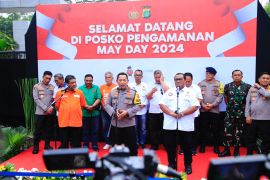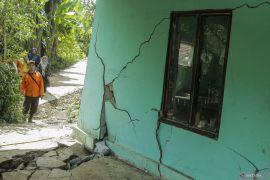"Indonesia`s national logistics costs are 24 percent of the GDP, higher than other neighboring countries. Reduces cost and enhance the logistics and transportation system which will increase access to the international market and will have a direct impact on increasing trade," said the World Bank`s Senior Trade Specialist, Henry Sandee in a release received here on Friday.
The annual report was compiled by the Centre for Logistics and Supply Chain Assessment, Bandung Institute of Technology (ITB), Indonesian Logistics Association (ALI), STC Group and Panteia Research Institute in the Netherlands, and World Bank Indonesian Office to analyze and provide an overview of the progress made in tackling the problem of logistics in Indonesia.
Henry explained that one of the results of the study is the lack of efficiency of customs service at Tanjung Priok port, Jakarta, mainly during dwelling time, where goods loading and unloading from the ship to the port of exit.
"The dwelling time at Tanjung Priok container port increased from 4.8 days in October 2010 to eight days in 2013. This is exacerbating the bottlenecking situation for Indonesian import and export," he said.
Henry also added that other findings discovered that the government`s programs to utilize the 24 hours port service are not maximized, although the export-import document licensing processes have been accelerated.
The report also showed that the use of Cikarang Dry Port for import permit has not yet developed as expected due to very limited access, but this logistics facility services can reduce the cost and time as well as supporting the customs service at the Tanjung Priok port.
The government has made serious efforts to improve the use of Marunda Customs Hoarding and Cikarang Dry Port, so that the container congestion is reduced and no longer interfere the flow of goods continuity at Tanjung Priok port, since July 2013,
However, the congestion possibility at the port area will still take place due to the very limited road infrastructure access and the lack of adequate parking space for container trucks.
Besides, the government has improved the surrounding road conditions with toll roads construction in Tanjung Priok and installation of signs has been carried out by the port authority.
Currently, the Ministry of Finance team has also facilitated coordination to the Tanjung Priok Highway Task Force to accelerate the development of Tanjung Priok toll road which still constrained by land and licensing.(*)
Editor: Heru Purwanto
Copyright © ANTARA 2013











